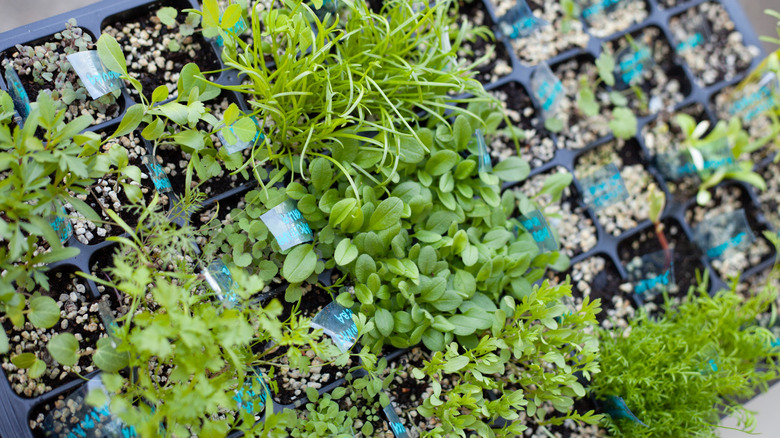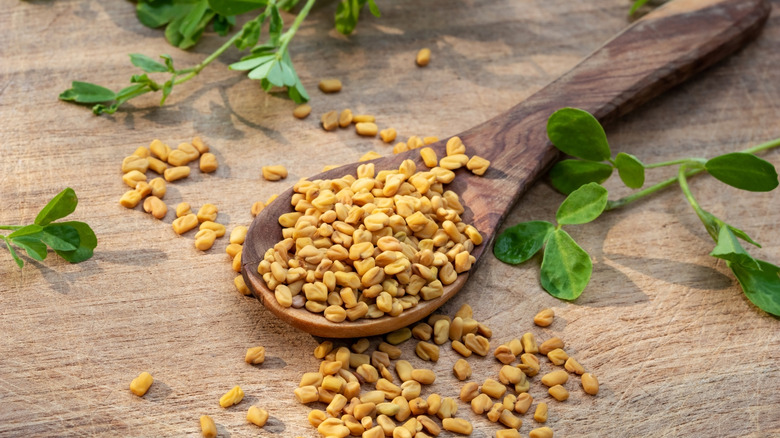Plant This Herb To Improve The Soil Quality In Your Vegetable Garden
Fertile soil is key for a lush, green kitchen garden where you can grow all kinds of vegetables and herbs. There are plenty of sustainable, cheap ways to build up that richness, like repurposing eggshells for your garden or using coffee grounds as fertilizer, but planting certain crops is also a solution. Besides bringing more variety to your kitchen garden, some plants can also boost your soil's nutrient content. Among them is an herb that has long been a popular culinary spice in western Asia and the Mediterranean: fenugreek.
This plant improves soil quality by adding nitrogen, an essential nutrient for plant growth that helps form chlorophyll for photosynthesis. Nitrogen also aids in protein formation, directly impacting your garden's overall growth. A lack of nitrogen can result in poor yields and a fragile root system. Fenugreek, as a nitrogen-fixing plant, tackles this need head-on, so its growth naturally enriches the soil for your next round of plantings.
Fenugreek is widely cultivated in countries like Egypt and India, where it forms an essential part of local cuisines. The traditional Egyptian beverage hilba is made by boiling fenugreek seeds, while in India, methi murgh (or chicken cooked with fresh fenugreek leaves) is a very popular dish. So, planting this herb in your kitchen garden will not only give your soil a boost but also ensure that you don't have to hunt for this ingredient the next time you need it for a recipe.
How to grow fenugreek in your garden
Because of their popularity in different cuisines, fenugreek seeds are easy to find in most well-stocked supermarkets. Simply soak a handful of these tiny seeds in water overnight, then cover them in about ¼ inch of dry soil in a spot that gets a lot of sunlight. If heat is a concern, try planting the seeds against a south-facing fence to maximize warmth. This hack works well for any plant that thrives in warm regions, as the sun exposure and heat retention from the fence create a more favorable microclimate. You can also start the germination process indoors about a month before springtime. Keep in mind, though, that fenugreek isn't very easy to transplant, so this method can be tricky.
Pests aren't much of a concern with fenugreek. Like cinnamon, another common pantry spice that doubles as natural pest controller in the garden, fenugreek can actually help deter certain pests like whiteflies. It might, however, attract intruders like aphids, though you can easily deter these with a neem oil spray or a simple soap-and-water solution.
Since you'll be using fenugreek as part of your crop rotation, it will not only enrich the soil with nitrogen but also help keep the ground healthier and more pest-resistant for future plantings. The best part? These herbs only take about a month before they're ready for harvest, so you can reap what you sow in practically no time.

